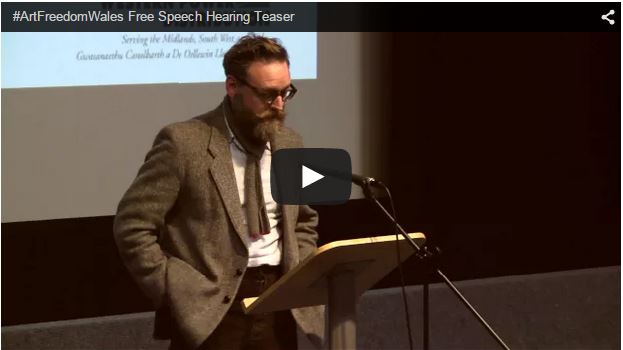Index on Censorship has been exploring artistic freedom of expression and contemporary forms of censorship in the UK. Who or what controls what is sayable in the arts? Who has a voice in the arts? Do the answers vary as we move around the different member nations of the UK?
Looking at our culture through the prism of artistic freedom of expression opens up questions about the power relations between artists, venues, audiences, the police, the media and community interest.
Our initial case study Beyond Belief – theatre, freedom of expression and the police offered insight into how these relationships are often played out in the present day. Deepening our exploration, conferences in London in 2013 and Belfast in early 2014, have been followed by a programme of work in Wales in the latter half of this year. Art Freedom Wales was Index’s exploration of whether Wales is enjoying its right to artistic free expression.
Across all three projects, it is becoming clear there are massive pressures on what is sayable in the arts–rifts around what is acceptable to funders, to the audience, to public opinion, or even health and safety. It is also clear that there are significant questions around the issue of access to artistic expression–for established and aspiring artists, as well as the public at large. Events this past summer at the Barbican around Brett Bailey’s Exhibit B have underlined recurring questions around the role of the police and the media in shaping what gets to be seen.
In 2015, Index is planning to explore the state of artistic freedom in Scotland before holding a state of the nations event which will bring together key players to discuss how to reinforce support for artistic expression across the UK.
ArtFreedomWales
Over the past few months Index’s project ArtFreedomWales has hosted a series of online discussions with artists from across Wales–established artists, emerging artists and artists working in Welsh. You can catch up with everything that’s been said here.
These discussions, and the issues they raised, informed our approach to a Free Speech Hearing in Cardiff on 27 November. As a culmination of the project, the hearing invited practitioners from across art forms alongside policy makers and cultural gatekeepers to come together to discuss the question “Is Wales enjoying its right to freedom of artistic expression?”
To open the hearing, Index invited Turkish playwright Meltem Arikan, an established artist, with direct experience of censorship who is now living in exile in Wales, to survey the Welsh arts scene from the eye of an outsider.
This was followed with an array of evidence volunteered from across Wales, short presentations surfacing a number of topics from offence to rumour, and self-censorship to cultural education.
Moving from the stage to discussion between peers, major themes and concerns were examined in more detail in breakout sessions.
Finally, a panel discussion featuring Dai Smith (Arts Council Wales), John McGrath (National Theatre Wales), David Anderson (Museums Wales), Lleucu Siencyn (Literature Wales) and Elen ap Robert (Pontio) asked how leading organisations in Wales might take on some of the issues raised during the afternoon?
This article was posted on Dec 10, 2014 at indexoncensorship.org





